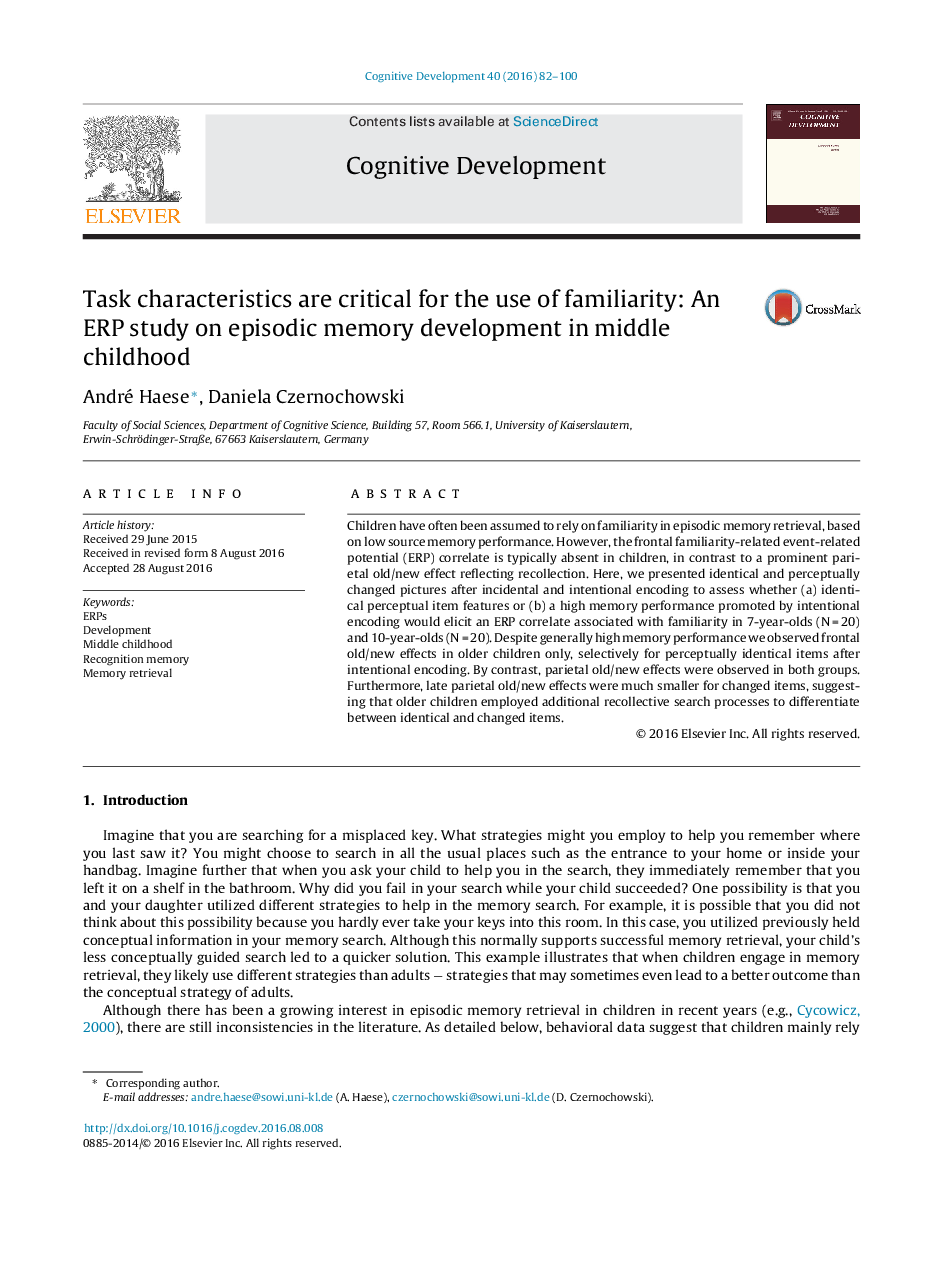| Article ID | Journal | Published Year | Pages | File Type |
|---|---|---|---|---|
| 7272333 | Cognitive Development | 2016 | 19 Pages |
Abstract
Children have often been assumed to rely on familiarity in episodic memory retrieval, based on low source memory performance. However, the frontal familiarity-related event-related potential (ERP) correlate is typically absent in children, in contrast to a prominent parietal old/new effect reflecting recollection. Here, we presented identical and perceptually changed pictures after incidental and intentional encoding to assess whether (a) identical perceptual item features or (b) a high memory performance promoted by intentional encoding would elicit an ERP correlate associated with familiarity in 7-year-olds (NÂ =Â 20) and 10-year-olds (NÂ =Â 20). Despite generally high memory performance we observed frontal old/new effects in older children only, selectively for perceptually identical items after intentional encoding. By contrast, parietal old/new effects were observed in both groups. Furthermore, late parietal old/new effects were much smaller for changed items, suggesting that older children employed additional recollective search processes to differentiate between identical and changed items.
Related Topics
Social Sciences and Humanities
Psychology
Developmental and Educational Psychology
Authors
André Haese, Daniela Czernochowski,
